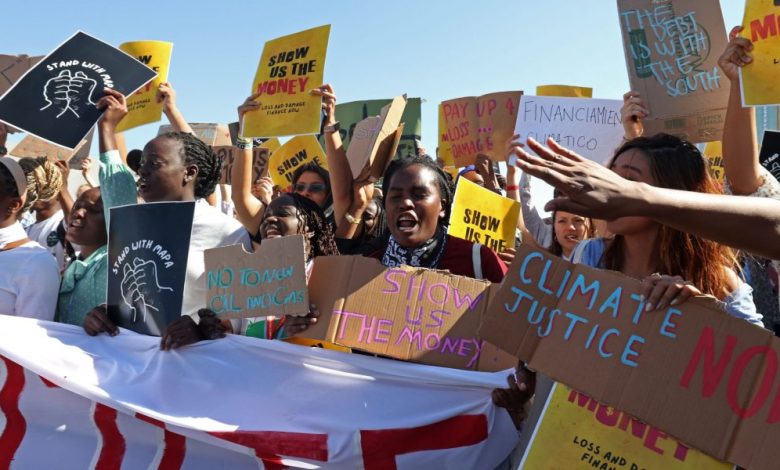The global temperature limit of 1.5°C is under threat at COP27

Strong action on global warming is being quickly eroded at this year’s COP27 as fossil fuel lobbyists at the UN climate conference seek to deaden the language surrounding the Paris Agreement.
Several unnamed countries want to omit mention of the 1.5-degree limit for global temperature increases in the official text of the COP27 summit, US special envoy for climate issues John Kerry told reporters in Sharm El-Sheikh on Saturday. Egypt.
“You are absolutely right. There are very few countries, but a few that have raised the issue of not mentioning this or that word,” Kerry said, speaking after some governments resisted mentioning the 1.5 degree target, or worst case scenario 2 -degree limit was asked. first agreed in 2015 as part of the historic Paris Agreement.
Removing 1.5°C language from this year’s draft agreement would be a big step backwards from last year’s COP26, which took place in Glasgow, where all signatory countries reiterated their pledge to the Paris Agreement.
“But the fact of the matter is that in Glasgow, what has been adopted, the language is there. And I know…Egypt does not intend to be the country to stage a retreat from what was achieved in Glasgow,” Kerry said.
While the Paris Agreement was seen as a breakthrough in international climate ambition, the world is still moving towards that limit, helped largely by the continued burning of fossil fuels. The world has already warmed by more than 1.1°C above the pre-industrial average temperature, leading to extreme weather conditions, food insecurity and death.
But as the conference enters its second week, fossil fuel producers have attempted to distance themselves from the Paris Agreement, claiming they are locked out of the global warming discussion. This was announced by Saudi Arabia’s Foreign Minister Adel al-Jubeir financial times on Sunday that the Paris agreement was “achievable” but “we don’t see it as a fossil fuel discussion.”
Fossil fuel producers are shaping climate talks
This year marks the first year that oil and gas companies have been invited to participate in the official program of events at COP27 in Egypt. Fossil fuels are the leading cause of global warming, according to the Intergovernmental Panel on Climate Change, causing 89% of total global CO2 emissions.
According to NGO Global Witness, 636 fossil fuel lobbyists working for Middle East oil and gas companies and governments are registered for the COP27 climate talks, a 25% increase from last year. The petrostate United Arab Emirates, which has agreed to host next year’s COP28 summit, has the most lobbyists of any country, with 70 official delegates. Fossil fuel lobbyists outnumber representatives from the 10 countries hardest hit by climate change, including Puerto Rico, Myanmar, Haiti, the Philippines, Mozambique, the Bahamas, Bangladesh, Pakistan, Thailand and Nepal, according to GermanWatch.
Fearing their own profitability in the wake of the energy transition, fossil fuel producers are looking for a compromise where their sector can continue to explore and sell oil and gas while the world continues to cut emissions.
“You can achieve carbon neutrality while producing fossil fuels, and we’re proving that in Saudi Arabia,” al-Jubeir said FT. Al-Jubeir, who reportedly had dinner with John Kerry on Sunday, did not comment on whether he wanted to keep 1.5C in the text, saying he was “leaving that to the negotiators”.
Saudi Aramco has other proposals to stop climate change. The state-owned oil giant hosted a “green initiative” event over the weekend attended by its CEO Amin Nasser and TotalEnergies chairman Patrick Pouyanné, where they promoted tree planting, carbon capture technologies, gas-derived hydrogen as Touted fuel and a “circular carbon economy” or recycling as climate solutions, rather than committing to stop drilling for oil and gas.
“I’ve been to eight COPs and I’ve never seen such blatant oil and gas advertising from a presidency,” said David Tong, activist at Oil Change International FT. “There is no legitimacy in a COP presidency that gives big polluters a big platform without even asking them tough questions.”
Sign up for the Fortune Features Email list so you don’t miss our biggest features, exclusive interviews and investigations.



